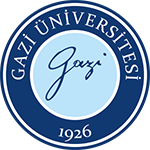ABSTRACT
Complement-1 esterase inhibitor (C1-INH), an endogenously derived compo-und, is a key mediator providing regulation of the complement system. In this study, the protective role of C1-INH was investigated in the setting of myo-cardial ischemia reperfusion injury. Guinea pig hearts (n=20) were studied in control (n=10) and experimental (n=10) groups, using a modified Langendorff perfusion apparatus. Control hearts were perfused with Krebs Henseleit soluti-on during pre-ischemia and reperfusion periods while C1-INH was added to the perfusates of experimental hearts during the reperfusion period. Heart rate (pul-se/minute), contractility (mm), and aortic pressure (mmHg) values were recor-ded at the end of pre-ischemia, post-ischemia, and reperfusion periods. Perfusa-te and tissue analysis for glutathione and malondialdehyde levels and perfusate analysis for nitric oxide levels were obtained at the end of each experimental period. Both increased aortic pressure and cardiac contractility as well as ele-vated levels of tissue glutathione and MDA were observed in the experimental group during reperfusion. Perfusate levels of glutathione and MDA remained unchanged. As a result, it was concluded that C1 esterase inhibitor preserved cardiac contractility and protected against ischemia reperfusion injury.



